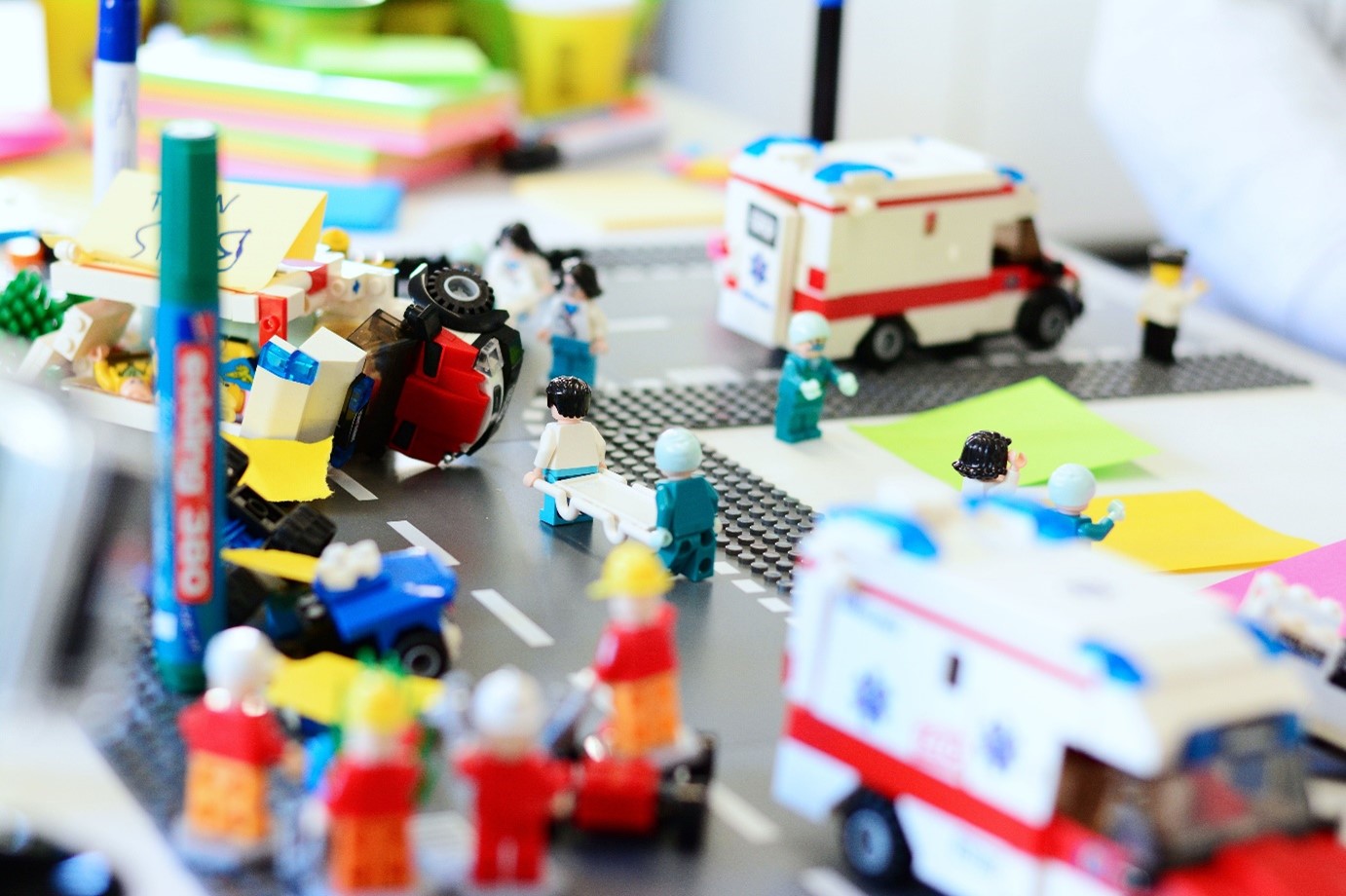The MED1stMR project started with the kick-off in June 2021 and is in full progress. In the last weeks, the consortium conducted the first requirement workshops to identify the needs of the end users within the consortium for a Mixed Reality (MR) training solution and develop possible training scenarios for a MR training together.
End user in the centre of research
MED1stMR aims to develop a new generation of MR training for medical first responders by providing enhanced haptic feedback through the integration of high-fidelity patient simulation manikins and medical equipment into the virtual environment. This allows trainees to immerse in virtual scenarios and tactilely feel and visually perceive body, limbs and movements of the manikins while examining and treating them.
The end user requirement workshops are led by AIT – Austrian Institute of Technology together with UMU – and conducted with representatives of all medical first responder partners (= end users) in the consortium. The goals of the workshops are to:
- Identify the needs, aspirations and expectations of the members of the medical first responder organisations for future training and MR as a novel training technology
- Gather first-hand knowledge and experience of their work and training
- To actively involve the end users in the initial steps of developing training in Mixed Reality, by creating future training scenarios and use cases
Innovative research methods
During the 2-day workshop, the researchers collaborate with the end user representatives to gain input and ideas for how to improve training for mass casualty incidents (MCIs) and for integrating MR technologies into such training. Various user-centred design and research methods are used to do so. For example, to collect suitable, end user approved training scenarios, the participants use building blocks to create tangible 3D representations of scenarios. They also use a VR tool to create scenarios for VR in VR.
The chosen methodology ensures the active inclusion and participation of end user organisations in the development and research of the project. Their practical know-how provides valuable insights into the wants and needs for the future MR training solution.

